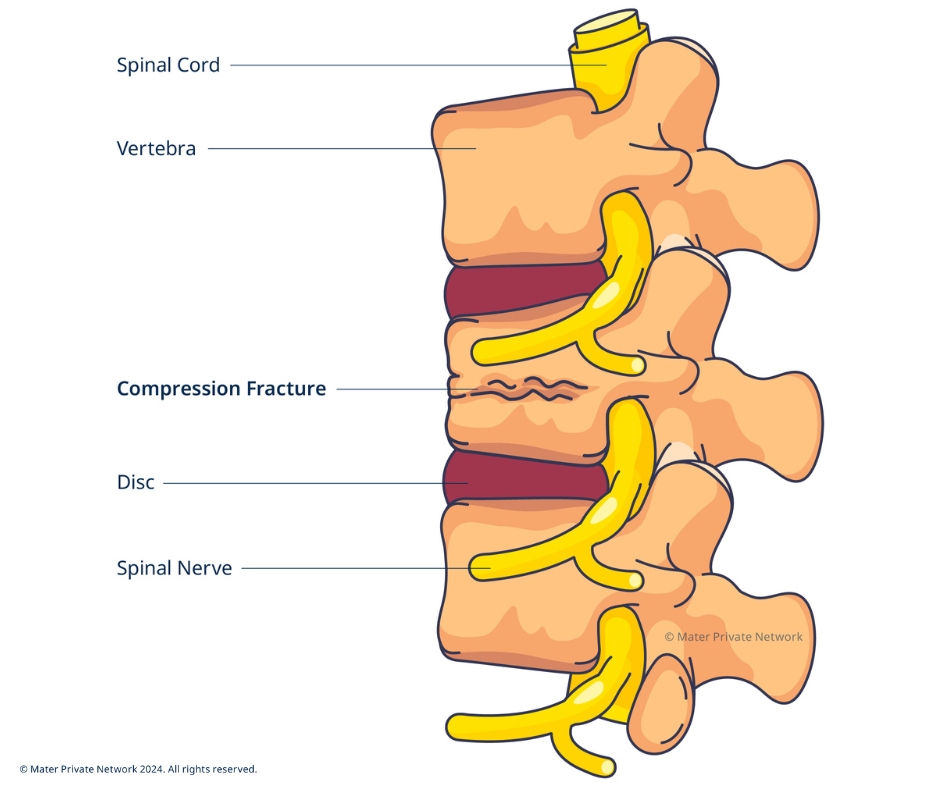Compression Spinal Fractures
What are compression spinal fractures?
A compression spinal fracture is when a bone in your spine becomes compressed or collapsed. 
What happens if I have compression spinal fractures?
Your vertebrae (spinal bones) may collapse, becoming shorter overall. This mostly happens to the front of the vertebrae, making you stoop over time. It can become quite painful.
What causes spinal (compression) fractures?
There are three main causes of compression spinal fractures:
- Osteoporosis: a weakening of the bones that can occur in older men and women
- Injuries
- Tumours
How do I know if I might have compression spinal fractures? What are the symptoms?
If a compression fracture happens quickly, possibly as a result of an injury, you may feel sudden, severe back pain. If it occurs gradually, from osteoporosis for example, you may not notice for a while. However, over time you may notice that:
- Your back feels painful — lying on your back may help to relieve the pain and standing may make it worse
- Your height is decreasing
- You are beginning to stoop forward
- You feel a numbness or tingling, or have weak muscles, problems walking, and (possible) trouble controlling your bowels or bladder because of nerve damage
How is a compression spinal fracture diagnosed?
Your doctor will carry out a physical examination and will check whether your upper spine is curving forward. You may also need to have one of the following diagnostic tests or scans.
- Bone density test (if osteoporosis is suspected)
- X-ray to check for fractures or abnormal movement of the spine.
- Magnetic resonance imaging (MRI) to see if there is any soft tissue damage and to assess spinal cord injury
What are the treatment options for compression spinal fractures?
Possible treatments for a compression spinal fracture depends on its severity and the root cause. Non-surgical approaches include:
- Pain medications
- Bed rest
- Wearing a back brace
- Physical therapy
- Osteoporosis treatment if bone weakening is suspected
Surgical options include:
Spinal fusion: during a spinal fusion procedure, your damaged bone is repaired and joined (fused) to another vertebra. Mater Private Dublin is the only hospital in Ireland to offer robotic-assisted spinal fusion surgery, which maximises accuracy and minimises risks.
Kyphoplasty: this procedure involves placing a small balloon in the damaged vertebra to make it taller. The balloon is then filled the empty with a special cement.
Your doctor will discuss the risks and benefits of each option with you before deciding on the most appropriate treatment.
How long does it take to recover from a fractured spine?
In general, the recovery time is between 8 and 10 weeks with rest, medications and a brace for compression spinal fractures stability. If your fracture is caused by osteoporosis, and you don’t need surgery, your injury should heal itself within three months, depending on its severity.
However, if you need surgery for your compression spinal fractures, your recovery time could be longer.










